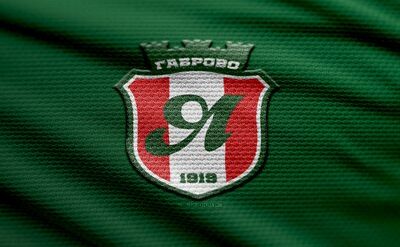Ferenc Puskás‘ name is synonymous with football greatness. A master of the ball, his stunning goals and leadership set new standards for the sport. From his early days in Hungary to conquering the world with Real Madrid, Puskás’ legacy transcends time. His unmatched skill, visionary playmaking, and unparalleled passion forever shaped the footballing world. This article takes you through his extraordinary career, celebrating the moments that solidified him as a true football legend FB88.
Ferenc Puskás and the Hungarian Golden Team
The term “Golden Team” encapsulates the magic and brilliance of the Hungarian national side during the late 1940s and early 1950s. Ferenc Puskás was the beating heart of this team, leading them to unprecedented success.
The Rise of the Golden Team
Formed amidst a backdrop of societal change, the Hungarian Golden Team captured the imagination of fans, blending artistry with athleticism. Under the guidance of coach Gusztáv Sebes, the team adopted an innovative style of play that emphasized fluid movement and tactical awareness. Puskás’s emergence as the star player provided a focal point for the team’s attacking prowess.
Historic Matches
The Golden Team achieved notoriety for their sensational victories, including a stunning 8-3 win over England at Wembley. This match not only showcased Hungary’s dominance but also demonstrated Puskás’s ability to perform on the grandest stage. Notably, he scored two goals in that historic encounter, further solidifying his status as a footballing genius.
The Downfall and Its Impact
Despite their triumphs, the Golden Team faced heartbreak in the 1954 World Cup final against West Germany. The loss was a devastating blow, yet Puskás’s legacy endured. The spirit of that team inspired future generations of Hungarian footballers, establishing a benchmark for excellence that remains relevant today.
Puskás’ Impact on Modern Football
Ferenc Puskás‘s influence on modern football is profound and expansive, impacting not only players but also the tactical philosophies of coaching.
Tactical Evolution
Football tactics have evolved significantly since Puskás’s era, yet his emphasis on teamwork and strategic play remains relevant. Coaches draw inspiration from his ability to orchestrate attacks, integrating similar principles into contemporary formations. The concept of ‘false nines’ and fluid attacking movements can trace their roots back to Puskás’s style.
Player Development
Young athletes today benefit from studying Puskás’s techniques. His dribbling skills, shooting accuracy, and positional awareness exemplify qualities that every aspiring player aims to develop. Various training academies incorporate drills inspired by Puskás, acknowledging his role in shaping future generations of football talents.
Cultural Representation in Football
Puskás’s significance extends beyond the pitch, influencing how football is perceived culturally. His story symbolizes the intersection of sports and identity, demonstrating how great athletes can serve as representatives of their nations. By embodying the values and struggles of Hungary, Puskás helped shape the narrative of football as a transcendent force in society.
Key Matches in Ferenc Puskás’ Career
A footballer’s career is often defined by memorable matches, and Ferenc Puskás experienced his fair share of unforgettable encounters.
The Match of the Century
One of the most iconic matches in Puskás’s career occurred during the 1954 World Cup group stage when Hungary faced Brazil. This match, dubbed the “Match of the Century,” showcased Puskás at his finest. He scored two brilliant goals, leading Hungary to a resounding victory and securing their place in the knockout stages.
Rivalry with England
Puskás’s rivalry with England is legendary. Their aforementioned clash at Wembley in 1953 remains a highlight of his career, illustrating how he thrived under pressure. The ability to score and assist in such a high-stakes environment highlighted his capacity to deliver when it mattered most.
The Heartbreak of the 1954 Final
The 1954 World Cup final against West Germany stands out as both a pinnacle and a low point in Puskás’s career. His controversial disallowed goal and the subsequent defeat marked a poignant moment in football history. While it was a bitter disappointment, it further elevated Ferenc Puskás‘s status as a legend and illustrated the unpredictable nature of the sport he loved.





